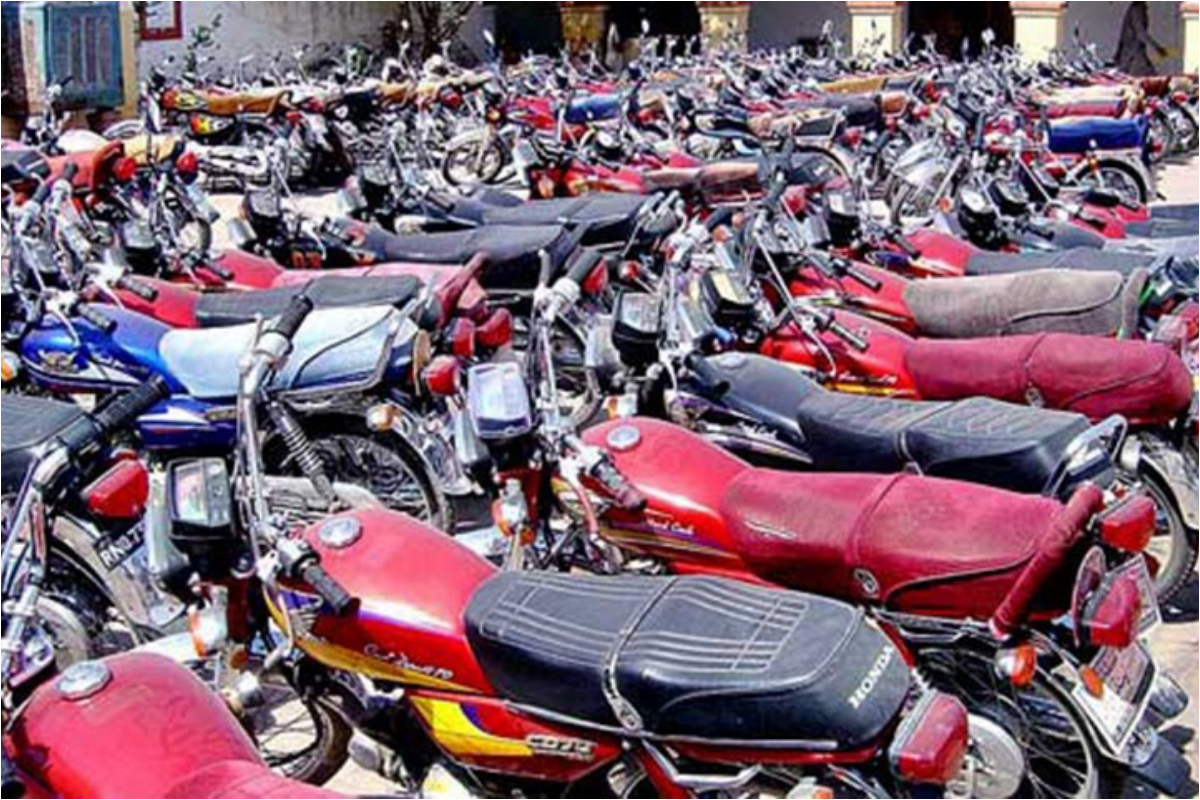The motorcycle industry in Pakistan is facing a severe downturn, with plummeting sales attributed to excessive inflation, leaving dealers and customers seeking relief. Dealers have called upon motorcycle manufacturers and auto parts vendors to lower their prices, considering the diminishing purchasing power of their customers.
The chairman of the Karachi Motorcycle Dealers Association, Mohammad Ahsan Gujjar, voiced the concerns of the industry in a recent interview. He highlighted the fact that despite a significant drop in the value of the US dollar against the Pakistani rupee and a reduction in petrol prices, customers have yet to see any meaningful relief.
Gujjar revealed that, on average, around 30,000 motorcycles were sold per month in Karachi, but this number has now plummeted to a mere 6,000. He urged Japanese and Chinese motorcycle manufacturers to lower the cost of their 70cc bikes by Rs. 40,000 and Rs. 20,000, respectively.
Japanese companies, in particular, have been criticized for increasing the prices of motorbikes with engine capacities ranging from 100 cc to 150 cc, raising costs by Rs 125,000 to Rs 175,000 over the past year and a half. Gujjar stressed that these price hikes should be reversed promptly, as the rupee has regained its value and raw material costs have also become more affordable.
The situation in the motorcycle industry stands in stark contrast to the passenger car sector, where some assemblers have lowered prices due to an increase in the value of the rupee against the US dollar. Despite boasting up to 90% localization, motorcycle manufacturers have been slow to pass on the benefits of localization to consumers.
The current economic conditions have made it increasingly challenging for dealers to cover operational costs, including employee wages, electricity bills, and other expenses. Gujjar warned that if market conditions do not improve and prices remain high, many dealers may have no choice but to close their shops.
Muhammad Sabir Shaikh, the former chairman of the Association of Pakistan Motorcycle Assemblers, shed light on the challenges faced by the industry. He explained that assemblers imported auto parts when the US dollar was trading at Rs 290 and halted imports when the currency crossed Rs 300. The constant fluctuations in the currency market have made it difficult for manufacturers to make price-cutting decisions.
Auto analyst Zain Shariq offered insights into the market phenomenon, emphasizing that the industry faces a lag of three to four months before changes in the US dollar’s value have a tangible impact. Additionally, rising labor costs, increasing utility bills, and soaring inflation rates have forced businesses to raise prices.
[embedpost slug=”/exploring-popular-affordable-sports-bikes-in-pakistan/”]

















